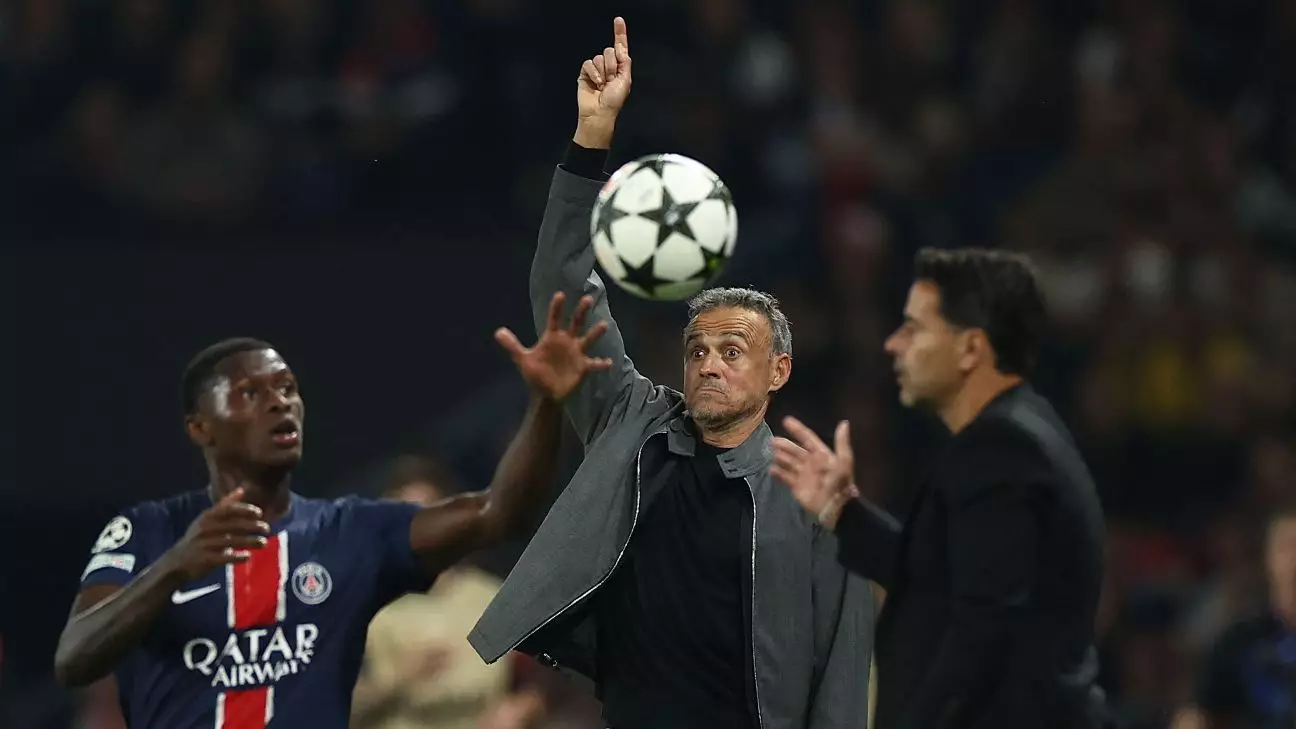Paris Saint-Germain (PSG) recently kicked off their journey in the newly structured UEFA Champions League by securing an essential victory against Girona, but the aftermath of the match has sparked critical reflections from their manager, Luis Enrique. It’s not merely about winning; the ambiguity surrounding the new competition format leaves everything up in the air, as Enrique himself highlighted. His remarks reveal a deep-seated uncertainty regarding the implications of their 1-0 win, framing it against a backdrop of an evolving football landscape.
Enrique emphasized the unknowns of this novel format where each of the 36 competing teams will face eight unique opponents in a league stage. With the top eight automatically progressing to the knockout rounds, the necessity to comprehend the real significance of each match becomes paramount. “How many points are we going to need?” Enrique questioned, perfectly illustrating the strategy and tactical readiness required for his team to excel beyond just securing victories. The complexity of this format necessitates not only a strong performance but also an adaptable mindset in navigating the competition’s unpredictable nature.
Throughout the game, PSG displayed their usual dominance, controlling much of the play and generating a plethora of scoring opportunities. However, the match was precariously balanced until the very end. Girona, last season’s surprise team in LaLiga, put up a resilient defense that kept PSG at bay, forcing them into an unusual state of frustration. It was only in the dying minutes that fortune favored the French champions when Girona’s goalkeeper, Paulo Gazzaniga, fell victim to an unfortunate blunder, letting a Nuno Mendes shot slip through his legs. This unfortunate turn of events depicts not only the unpredictable nature of football but also underscores the fine line between success and failure in high-stakes games.
Luis Enrique’s description of the match as being exceptionally challenging reflects the tactical intensity exerted by both sides. “Girona played us in circles and made us dizzy,” he remarked, which serves as a testament to their tactical suitability and ability to disrupt PSG’s flow. Despite the eventual win, the struggle illustrated that PSG, while a powerful team on paper, is still susceptible to challenges that could jeopardize their standing in this volatile new Champions League landscape.
Challenges Beyond the Scoreboard
Yet, the match carried an additional burden for PSG with the injury of striker Marco Asensio before half-time. Enrique’s assessment of Asensio’s condition as simply a “twinge” reflects the delicate balance of player health in professional football. Despite this setback, the manager harbors faith in the depth of his squad. In a season where every player’s contribution is paramount, resilience will be essential as the calendar fills with pivotal fixtures both domestically and in Europe.
Conversely, Girona’s manager, Michel, displayed remarkable sportsmanship, commending his team’s efforts despite their loss. His acknowledgment of Gazzaniga’s previous impressive saves before the critical error served to remind everyone of the fine margins that define match outcomes. “We have to recognize that their victory is deserved,” insists Michel, who encourages his players to take pride in their performance, an outlook that reflects a constructive approach in the face of disappointment.
As PSG prepares to face Reims in their next Ligue 1 fixture, the focus will likely shift toward maintaining momentum while addressing concerns raised during the Girona match. With multiple games left in this unfamiliar Champions League format, Enrique’s squad will have to balance strategic planning and on-pitch execution. The true nature of their campaign may not fully unfold until later matches reveal how teams navigate their schedules.
While PSG’s victory against Girona signifies a promising start, the complexities and uncertainties of their Champions League journey loom large. The road ahead promises to be filled with both opportunities and challenges, as players, managers, and fans alike grapple with the evolving dynamics of European football competition. The resilience, adaptability, and strategic foresight displayed will be critical as they strive to leave their mark in a tournament shaped by the unknown.

